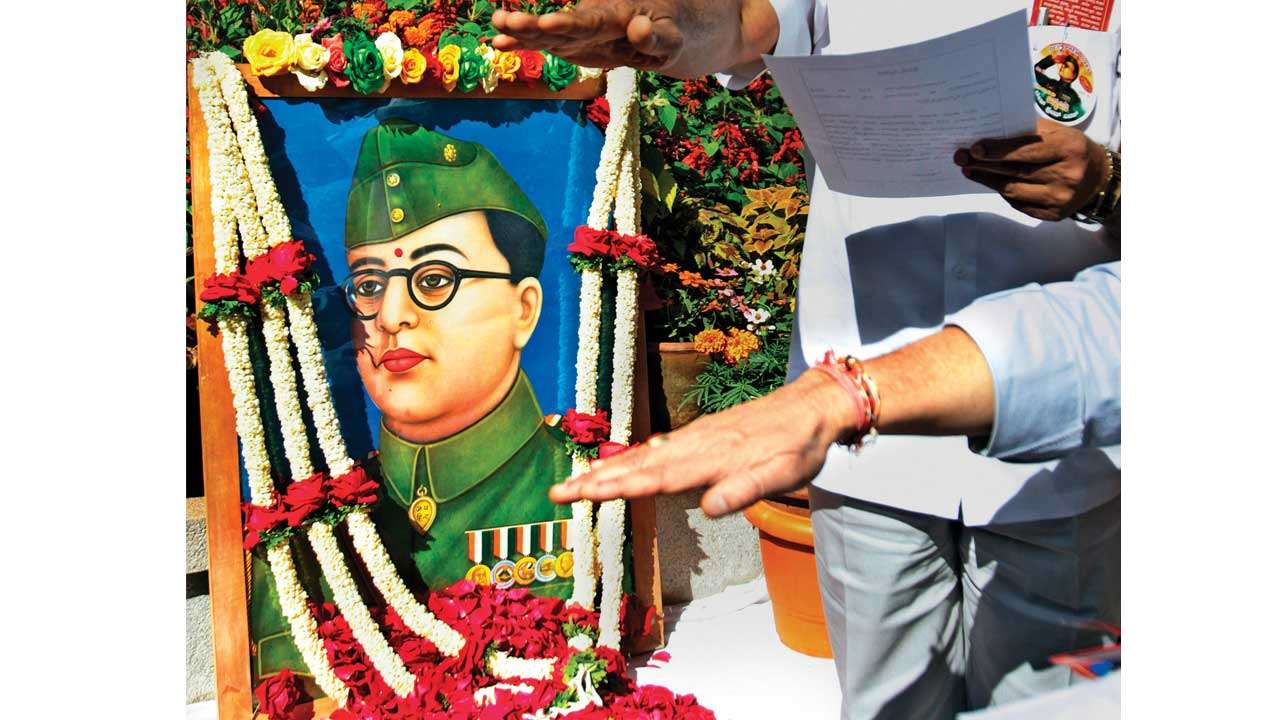
History is written by victors. Therefore the narrative of the Indian freedom struggle was written at the behest of the first rulers of Independent India. Thus the Quit India movement is seen in these books as delivering the final blow to the British and the Congress party led by Mahatma Gandhi and Jawaharlal Nehru projected as the real heroes who led India to freedom through non-violence and satyagraha. Effectively dinned into the subconscious of the nation through history books, it is hard to appreciate that this is palpably false and obfuscates the truth. In reality, the British left India because of Netaji Subhas Chandra Bose, who delivered the final nail in the coffin of the imperial masters.
The British ruled India only on the strength of the British Indian army whose soldiers were Indians but officers were British. Without this army, the British could never hold together, ‘the jewel in the crown’ and exploit its resources. Smartly, the British had raised the army on communal lines with regiments based on castes and communities to perpetuate feudal feelings and prevent the development of a national consciousness. Netaji Subhas Bose realizing this raised an Indian National Army (INA) which had men of all castes and communities in mixed regiments and who ate from the same kitchens. The poorly equipped INA men (recruited in South-East Asia from Indian prisoners of war) fought valiantly on India’s northeast borders but lost the battle. 26,000 of the 60,000 INA soldiers perished on the battlefront. Being with the Axis Powers, they were on the losing side in World War II. Netaji disappeared after the conclusion of the World War and what happened to him thereafter remains a matter of conjecture — albeit it is now proven that no air crash in which he is supposed to have died ever took place.
Significantly, Netaji raised the level of consciousness among Indian soldiers who fought for the British. During the wartime, INA’s exploits remained unreported because of military censorship. But with the historic trials at Red Fort in late 1945 where three officers of the INA (a Hindu, one Sikh and a Muslim) were arraigned for waging war against ‘the King-Emperor’, a new wave of nationalism ran through the country including in the armed forces. Sections of the armed forces became restive and there was a mutiny in the Royal Indian Navy (RIN) from Karachi to Calcutta. The British began fearing an encore of the 1857 rebellion which had nearly resulted in their eviction from India. Lt General S K Sinha reported that on taking charge as a Captain in the Military Operations Directorate in the Army Headquarters, he chanced upon two ‘top secret’ files. One pertained to ‘Operation Gondola’ a detailed plan to evacuate the 43,000 Britons from the country in the event of an Indian rebellion. The second contained an intelligence assessment of the loyalty of Indian army officers and said that wartime Emergency Commissioned Officers (nearly 11,500) had doubtful loyalty.
After the War, the newly elected Labour government in Great Britain under Clement Atlee suddenly and inexplicably decided to grant freedom to India. A few years later in 1956, as a private citizen, Atlee visited Calcutta. The acting Governor of West Bengal, Justice P V Chuckraborty in a private meeting asked Atlee the compelling reasons which made the British leave. Atlee said that the INA activities of Bose had weakened the foundation of the British Empire in India and the mutiny of the Royal Indian navy made the British realize that Indian forces could no longer be trusted to prop up the British. When asked about the role of the Quit India movement and Mahatma Gandhi in pushing out the British, Atlee’s lip widened in a smile of disdain and he uttered slowly ‘minimal.’ Similarly, B R Ambedkar told the BBC in an interview in 1955 that he believed that the British left India only because the loyalty of Indian troops could not be taken for granted after Subhas Chandra Bose raised a national army. The British had ruled India under the premise that whatever the politicians did the loyalty of Indian soldiers (to them) would not change. Thus to keep India under British control would require a huge number of European troops which was not possible. Since Britain held India only for trade and commercial interests, they left India making sure that this was not affected. Netaji’s grand- nephew Surya Kumar Bose says that he accompanied his father (who was Netaji’s nephew Amiya Kumar Bose) in November 1976 to a meeting with Lord Mountbatten and that the last Viceroy of India said that ‘it was Subhas and his INA that made them leave India in a hurry.’
It is time to recognize this reality and incorporate Netaji’s role in pushing the British out in history books.
Kingshuk Nag is an eminent journalist and the author of the book ‘Netaji: Living Dangerously’